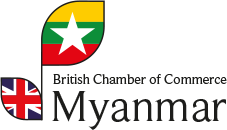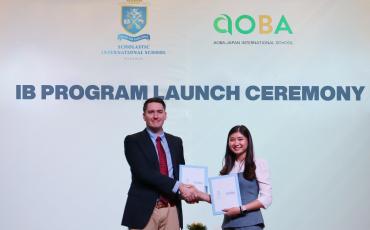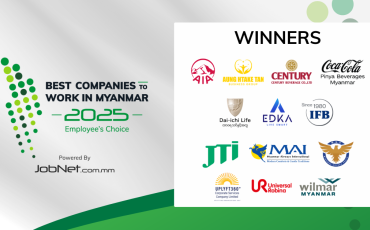
The Myanmar Investment Commission (MIC) has permitted foreigners to make full capital investments in
private schools in Myanmar. This means foreigners will now be able to fully own and operate private schools
teaching a curriculum prescribed by the Ministry of Education (MOE) or an international curriculum.
The Myanmar Investment Commission (MIC) has permitted foreigners to make full capital investments in private schools in Myanmar, according to Notification 7/2018 issued by the MIC on April 20.
This means foreigners will now be able to fully own and operate private schools teaching a curriculum prescribed by the Ministry of Education (MOE) or an international curriculum.
International service providers will now be able to make investments in basic education schools, technical, vocational and training schools, higher education schools, subject-based schools and private schools designated by the MOE, according to the notification.
The move is good news for local students, who will now be able to choose from more international education options, Daw Khin Hnin Soe, principal and director of Myanmar Metropolitan College, said
Even before the notification was released, foreign interest in the Myanmar education sector had been on the rise. Earlier this month, London-listed Myanmar Strategic Holdings (MSH) and Auston Institute of Management announced a joint venture to set up and operate a private school in Yangon.
The initial curriculum will include the Diploma in Engineering Technology, Diploma in Construction Project Management and Diploma in Networking, Information Systems and Security.
MSH also announced the planned opening of its third Wall Street English language centre in Yangon in August. It opened the first two centres last year and is targeting up to ten centres across Myanmar by 2027.
Daw Khin Hnin Soe said that a framework should be set up to maintain the quality of investors who enter into the sector. “The government should monitor foreign direct investments (FDI) into this sector and approve only the quality options,” she said.
U Min Khaung, founder of Amara Institute which teaches business management subjects, agreed. “If the government can actively monitor and approve only quality investments that expand students’ options and exposure, everyone will be better off,” he said.
New law needed
While lauding the move as beneficial for the Myanmar education sector, U Kyaw Min Khant, secretary of the Myanmar Teachers’ Federation (MTF) pointed out that the education law should be updated to include rules on new foreign private investments.
“The government is courting FDI into the Myanmar education sector, which is good for the country. But there are no effective educational laws in Myanmar yet. Even though the MIC has approved FDI in local private schools, it is unclear how this will pan out without proper laws and regulations in place at this point,” he said.
Currently, private education is governed by the 2011 Private School Registration Act.
Mr Eugene Quah, chair of Edulink Australia, an education consultant in Myanmar, agreed. “We still have a long way to go if Myanmar is to attract more high-quality investments in this sector,” he said.
For one, the current regulatory framework is still nebulous and prone to change. Meanwhile, the existing National Education Law also does not specify requirements or provide adequate consumer protection for paying students.
“We encourage the government to continue to enact legislation that creates a more enabling environment for high-quality investments in education and promotes healthy competition that benefits customers,” he said.
According to the MIC’s notification, the new private schools will be regulated under the Myanmar Investment Law and 2014 National Education Law. This will remain effective until new laws in relation to the private schools are enacted, it said.
Education reform
Since coming to power, the NLD-led government has also taken efforts to restructure the public education system and provide residents with greater access to education amid an outflow of local students from the country. According to UNESCO data, an average of 7,200 students left Myanmar each year between 2011 and 2016 to study in foreign countries, with Thailand, Japan, Malaysia and Singapore the most popular destinations.
In 2015-16, it more than doubled spending on education to K700 billion, according to the Oxford Business Group’s 2018 report on Myanmar. This rose by 85.7 percent in 2016-17 to K1.7 trillion. In 2017-18, spending on reforming the public education sector is expected to be similar to the previous year’s level, translating to the sector receiving around 8.5pc of the total budget allocation.
Meanwhile, many investors like MSH have entered the market with private education options including international schools and foreign curricula programmes as well as overseas tertiary and vocational partnerships offering joint diplomas in a range of fields, such as engineering and business administration.
As a result, the number of private schools operating in Myanmar has grown rapidly, from just over 50 in the 2012-13 academic year to 585 in 2016-17, according to the MOE. That’s an increase of more than 100 schools per year on average.
More recently, education consultancies like Capstone Education Consulting have also set up shop in the country. Capstone Education provides advice on how to help children achieve their highest academic potential.
While there are still many areas that need improvements as well as the removal of legislative and administrative barriers, prospects for the education sector are looking bright.
“The US government has classified Myanmar’s education sector as a best prospect industry sector for investors,” according to the Oxford Business Group report. “This is one of many promising signs that the system is fast catching up.”



